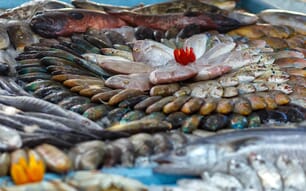According to the latest edition of FAO’s The State of World Fisheries and Aquaculture, global fisheries and aquaculture production totaled 158 million tonnes in 2012 - around 10 million tonnes more than 2010, driven by the rapid expansion of aquaculture.
Global aquaculture production marked a record high of more than 90 million tonnes in 2012, including almost 24 million tonnes of aquatic plants. China accounted for over 60 per cent of the total share.
Aquaculture’s expansion helps improve the diets of many people, especially in poor rural areas where the presence of essential nutrients in food is often scarce.
However, the report warns that to continue to grow sustainably, aquaculture needs to become less dependent on wild fish for feeds and introduce greater diversity in farmed culture species and practices.
The US NOAA National Weather Service has noted that the chance of El Niño is increasing, exceeding 65 per cent during the summer and that it could be the worst El Niño in decades, causing the migration of tuna and squid into cooler waters.
In Peru, a specialist and professor of Oceanography at the Universidad Agraria La Molina has told fishermen to embrace El Niño and focus on the positive aspect that it will help create a bigger healthier anchovy stock for 2016 due to the fish migrating south during the event.
The European Commission has proposed a full ban on the use of driftnets for fishing in all EU waters as of 1 January 2015. Although rules are already in place to forbid using driftnets to catch certain migratory fishes, the practice continues to be a cause of concern due to the incidental catching of marine mammals, sea turtles and sea birds which are mostly protected under EU legislation.
A ban on discarding fish may not be as environmentally friendly as first thought. New research from the University of Strathclyde, Scotland, UK, suggests that wildlife will suffer if fish are not discarded and that a ban on throwing unwanted fish overboard may not help improve fish stocks.
Professor Mike Heath commented: "Wildlife everywhere capitalises on waste from human activity, and discarded fish are food for a wide range of seabirds, marine mammals, seabed animals and other fish. Therefore, banning discards of fish could have unintended effects on the ecosystem."



